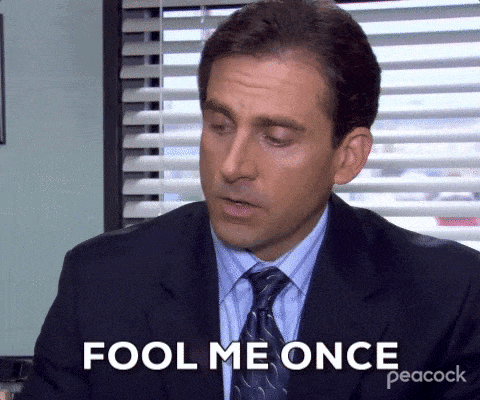What's in a Name?
Ben Klein and the role of brand names
“You’re a sucker if you buy the overpriced brand name.” So goes the advice we all have received (but definitely didn’t ask for). According to this logic, brand names (and their associated higher prices) are just a way to swindle the customer out of money. But it’s even worse! Look at the sheer number of brands and brand names out in the world. It is wasteful and induces choice fatigue.
Given the prevalence of brands in our world, we should at least start from a more intellectually humble place that maybe, just maybe, brands exist for good reason. Why do brands exist? What is their economic role?
I’m thinking about this because last week I participated in a conference on the work on Ben Klein put on by the wonderful International Center for Law and Economics. We (an insightful group of law and economics scholars and Sir Gifs-a-Lot) read and discussed some of Klein’s most important papers and some critics, such as Ronald Coase.
One of Klein’s important insights is that brand names exist as a form of quality assurance. A brand name is an imperfect stamp of quality, along some dimensions. Like Coase’s insights, that obvious once someone else explains it but often lost in the discussion.
Start with the Arrow-Debreu world of perfectly defined and enforced property rights and contracts; there is no need for a brand name. The good you buy lives up to whatever quality/reliability threshold you are buying.
But without perfectly enforced contracts, the producer may have an incentive to lower its quality if undetected. We may be in a market for lemons. Buyers know sellers have an incentive to skimp on quality and so aren’t willing to pay for quality. Since buyers aren’t paying for quality, sellers aren’t producing high quality. Everything sucks.
Klein, in a phenomenal paper with Keith Leffler in 1981, points out that is not the end of the story. Contrary to Arrow-Debreu (and common complaints about capitalism), the buyer-seller relationship is not transactional; often it's relational. Both sides want and benefit from an ongoing continuing, where the buyers come back regularly to repurchase.
To see the relational aspect, think of your grocery store. You’re not just trading money for avocados today. When you go to the store and inspect the food, you’re implicitly judging and remembering something about the quality. Even more importantly, when you go home and eat the avocado (or use the computer, wear the clothes), you do find out the quality. Whenever you want to buy that product again, or something similar, you have a memory of the quality.
This was all too true for me. I have two grocery stores near me. One has bad produce 🤢, according to my subjective valuation. Of course, I didn’t know that when I moved here. So I went shopping there. Unfortunately, after going to the store and realizing the produce was bad but not SOOOO bad that it was worth going to the other store, I came home disappointed. One could see this as the result of “market failures” because I don’t know the quality of the products before going to the store and thus am trapped.
The Kleinian insight is that, while it is true that I could walk away upset about quality, that’s not the end of the story. For brand names to have value, they must also have a cost if quality drops. I was able to effectively punish that store for its low quality by never going back. With brand names on the stores and the products, I can “exit” the relationship with that store and any other stores of the same name.
Brands are so common in our modern world that it is hard to imagine a world without them. Not only do we rely on the product brand names, we rely on the store’s brand as well, as in my example above about the grocery store as a brand. As Klein explains,
Even people who assume that all aspirin is alike spend some money on brand-name assurance since they do not buy “nonbrand” aspirin off the back of a pickup truck at a swap meet.
Without brand names, this market-disciplining force is much weaker. How are you going to punish a bad supplier without a brand name? You can't. Your "exit" option is much weaker since you must exit the good completely. You also can’t use past experience to judge the quality of the product.
Imagine going to the liquor store and only having the label “pale ale” or even just “beer”. Government regulation isn’t going to help the problem. The beer is going to be bad.
Klein’s work on brand names fits nicely with three ideas we have discussed a lot in this newsletter.
First, competition is about more than prices. If it were all about the price, only the generic drugs would exist (at least after the patent expires). There is a role for quality and reliability.
Second, from Klein’s colleague Armen Alchian, we know that costs and benefits take place over time. Therefore, we should value (benefits minus costs) in terms of capital value. By letting quality drop today, a firm loses future customers and thus takes a loss to the capital value of its brand quality. Without a brand name, then you have less to lose in future payments from quality declines.
Finally, long-lasting policies are likely, approximately efficient and serve an economic purpose. Once we understand brand names, we can make sense of the reason for government support for brand names through such things as trademarks. Forget whatever the lawyers say. For our conversation, a trademark is simply a legal protection of a brand name or related imagery and slogans. To encourage companies to invest in quality products (in the broadest sense, including the quality of being a cool brand), the government helps support their price premium.
Brands are no panacea. But Klein’s work shows us how legal and market forces develop together to address possible market failures. It’s a subtle interplay worthy of exploration.




